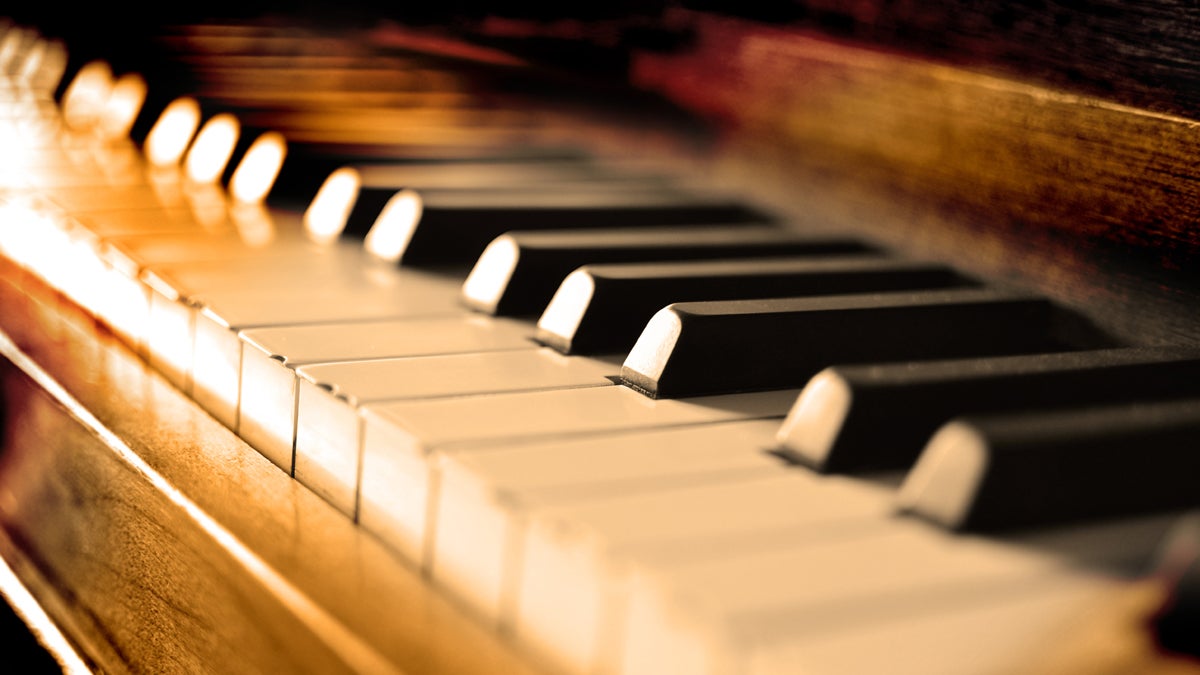Found pianos help this medical student express the feelings that words often can’t

(Antique piano keys image courtesy of Shutterstock.com)
Another consult finished and reviewed with my senior resident. No patients going to the operating room just yet. No calls from the ward. I walk downstairs with a sense of purpose. Until my pager goes off again, it’s time for a piano break.
Another consult finished and reviewed with my senior resident. No patients going to the operating room just yet. No calls from the ward. I walk downstairs with a sense of purpose. Until my pager goes off again, it’s time for a piano break.
Before I left for undergrad in Toronto, 3,500 km away from my home in Calgary, I was very shy about playing in front of other people. But pretty I missed having a piano around much more than I thought.
So I scoured the campus for public pianos, exploring all the forgotten nooks and crannies of dozens of buildings, wandering down every hallway to make sure I didn’t miss anything. (I later learned that my navigational method was similar to performing a bronchoscopy.) I found them in old classrooms, chapels, ice cream shops, public markets, hospitals, and student residences. Some were so out of tune that I felt instantly transported to an old timey saloon. Some were unbelievably pristine, and I felt obligated to play only my best pieces on them.
I made new friends who enjoyed the music enough to help me access the more elusive pianos. By the end of first year, I had a mental map of all the pianos on campus and their accessibility. I could be anywhere on campus and wander off to a piano within five minutes. Life was good.
‘Anonymity and vulnerability’
By necessity, I got used to playing in public. I would ask waiters setting up for a fancy function for a chance to play until the guests arrived. I would see from the corner of my eye strangers slowing down, sitting nearby for a while, and I’d share a smiling glance as they left. I even worked up the courage to play and sing on a relic of an instrument in my residence dining hall, my self-consciousness mitigated by the fact that my sound was buried in the roar and bustle of dinnertime.
Nevertheless, the occasional thank-you napkin would find its way to my bench. I embraced this new niche, somewhere between background music and performance, anonymity and vulnerability. I loved the feeling of brushing past strangers wordlessly with my music.
My habit followed me through undergrad and medical school, where it became an inseparable part of my routine. Like most things worth doing, medicine is hard work, full of ups and downs, and it stimulates so much growth that it has been nothing short of life-changing for me. I’ve learned more about humanity in the last four years than I did in my first two decades. But the road to growth for me is paved by witnessing the miracles and tragedies of life that many do not get to see until much later in life, if at all. And in a profession where our “everyday” might be someone’s worst day, there are experiences that are hard to express in words alone. Music fills that gap for me.
I have a spice rack of a repertoire to call on: jazz for happy days, indie-folk for heartache, Tom Lehrer for whimsical (if slightly dark) afternoons, a powerful Beethoven for release, Debussy for serenity, Leonard Cohen for the kind of poetry that I can’t write, and maybe a rap song just for a personal challenge. Music is at once an indulgence, confessional, and companion — a place I can go to just be.
Serendipitous connections
But I never would have guessed that such a lonesome activity would help me connect in so many ways. I will never forget the old man whose wife is still so alive in his memories, who taught me the love songs from their youth. The lady who played for 60 years before her arthritis made it impossible, who was both delighted and wistful when listening to others play. The girl torn between her political science degree and going full time as the singer of her rock band, which was finally taking off in the indie scene.
Another delightful side effect is the serendipity that has come to fill my life. I remember the science student (and budding magician, evidently) who followed the music to the chapel where I was playing and handed me an origami heart he had picked out from a pile of newspapers. Last fall, while waiting for a ferry from the Toronto Island, I was passing the time by playing “Hotel California” on a well-weathered piano in a cabin near the pier, when I was suddenly joined in perfect harmony by two guys in fluorescent jogging attire. They turned out to be members of a Beatles tribute band about to play a show next door.
Of course, there is also my most recent pleasant surprise — from which springs this post — a lovely reporter en route to an interview who stopped by to record me play a couple of songs for her radio show.
Now if you’ll excuse me, there’s a piano calling my name.
—
Linda Wang grew up in Calgary, Alberta, and attended the University of Toronto for her undergraduate studies. She is currently a medical student at the University of Alberta, and will be starting her Internal Medicine Residency at Western University in London, Ontario, this July.
WHYY is your source for fact-based, in-depth journalism and information. As a nonprofit organization, we rely on financial support from readers like you. Please give today.

